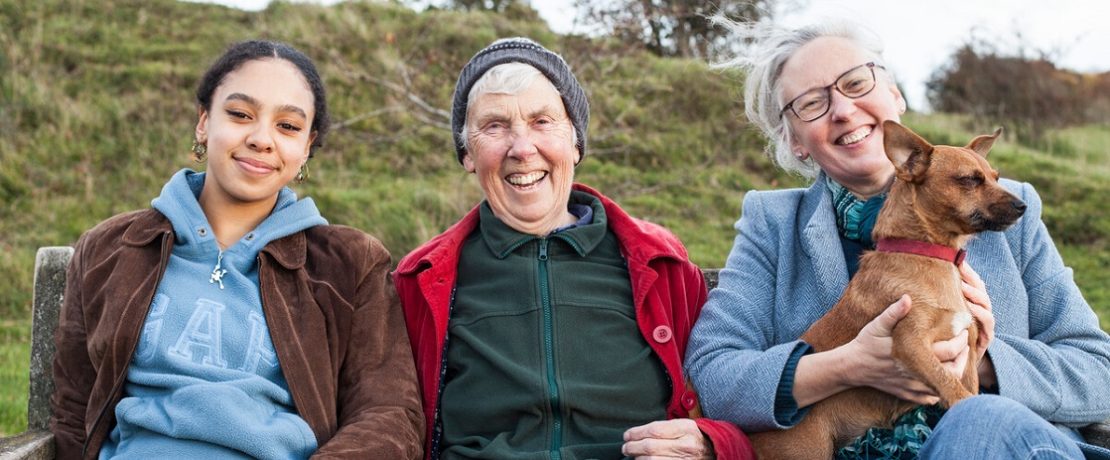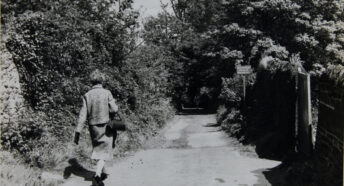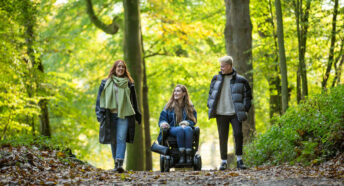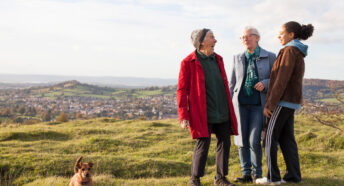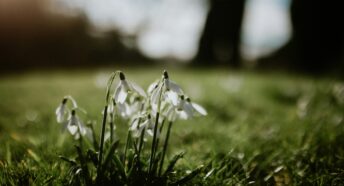Wonder women for women’s day
Need a bit of encouragement in challenging times? For International Women’s Day, some of our staff share the women who inspire them to campaign for a countryside for everyone.
Zahrah Mahmood (by Ally Davies)
I am really enjoying following the adventures of Zahrah Mahmood on Instagram, and she definitely inspires me and makes me feel more connected to the countryside. On there she goes by ‘the hillwalking hijabi’ and she shares gorgeous photos and tales of her walks in the UK countryside.
View this post on Instagram
She’s really frank about how walking connects her to her own physical and emotional wellbeing and also her faith – and also about some of the challenges of being a woman of colour, and wearing the headscarf, in spaces where she doesn’t always see many others who look like her. She’s a great advocate for the amazing power of being in the outdoors for absolutely everyone, and her photos of dramatic views (and mud, the less romantic side of walking!) remind me of how amazing our green spaces are.
Zahrah’s also a mum, now, and is just as candid about sharing her experiences of new parenting and of taking her new baby on walks. We need more people like her – shouting about the countryside, and celebrating it, but always with honesty and realism.
Rebecca Solnit (by Andrew Wood)
‘The rhythm of walking generates a kind of rhythm of thinking [and] a new thought often seems like a feature of the landscape that was there all along, as though thinking were travelling rather than making.’ So writes Rebecca Solnit in ‘Wanderlust’, one of the books that changed my life. I’ve long been an acolyte of the idea ‘solvitur ambulando’ – ‘it is solved by walking’ – but Solnit’s book taught me why. I apply that philosophy whenever I can: the days I walk I have better thoughts, better ideas, and I remember them better.
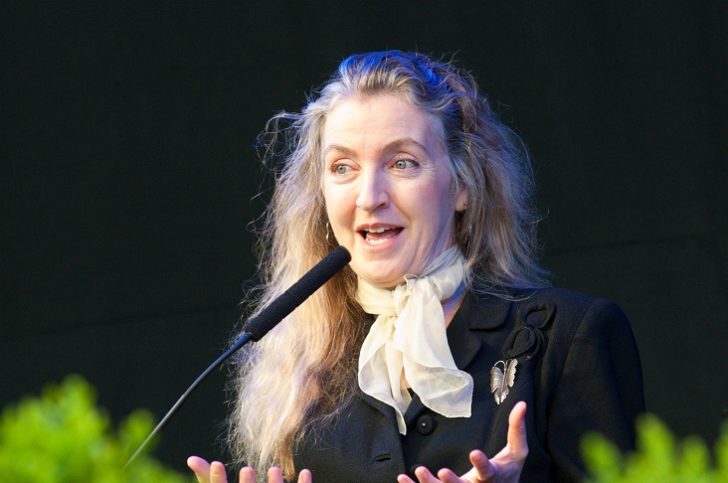
In ‘Wanderlust’, Solnit travels the world, and dedicates some time to the English countryside. She posits that William and Dorothy Wordsworth as good as invented walking in the countryside as a pursuit. Before them, pedestrian travel was a journey into a fearful wilderness populated by highwaymen, trolls under bridges and wicked wolf-grandmothers in the woods. Recreational walking was constrained to the safety of walled gardens and the curated Arcadia of designed landscapes, available only to those who lived within them.
And walking – often in pairs for safety and bonding, was a crucial stepping stone to women’s emancipation in the world of Jane Austen, presaging Margaret Attwood’s use of walking in ‘The Handmaid’s Tale’.
In a chapter from ‘Recollections of my Non-existence’, we accompany Solnit as she is followed home by a man, her fear so visceral she ends up accepting a lift from another male stranger to escape the first one. From my own window on the world, as a white man who has never experienced such violations, Solnit opened my eyes to how different the day-to-day world can be for a woman, and how I have to play my part in solving that. If I don’t, then walking – in town or countryside – can’t be as fruitful and life-enhancing as it is for me. That’s a wrong that Rebecca Solnit implores us all to put right.
Vandana Shiva (by Jane Seymour)
I was studying when I was introduced to Vandana Shiva and her work: both her writings but more importantly for me, her activism. It was such a relief to find out that the voices in favour of eco-activism weren’t just coming from the white west, quite often discussing what should happen outside their borders, but that there were people actively participating in those discussions elsewhere. Her thinking on sustainable alternatives to globalisation gave positive visions when discussions of corporate takeover dominated the headlines.
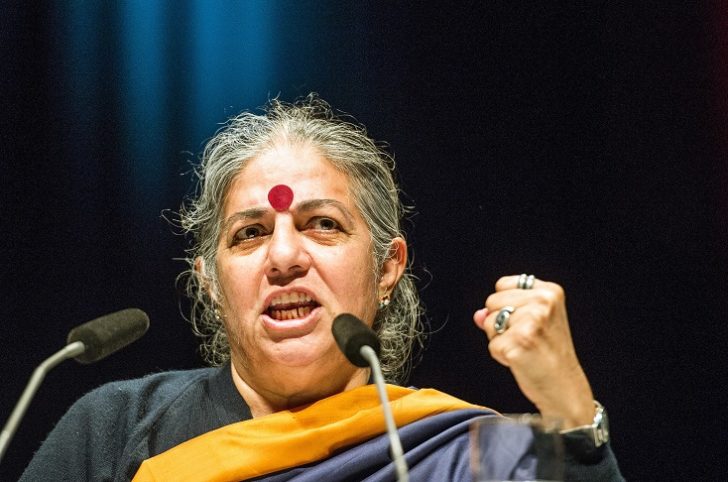
When she came to speak at the Birmingham G8 Birmingham People’s Summit, held to coincide with the Jubilee Drop the Debt campaign, I was thrilled to hear and see her speak in real life.
Food and particularly the dangers of genetically modified food, both in terms of retaining biodiversity and the sustainability of food resilience in agricultural communities, were her main topics then. But it is her ability to explain the intricate web between food, environment and communities and women’s lives, while campaigning with groups that seldom have visibility on the international stage, that continues to inspire to this day.
The women of Greenham Common (by Rosie Barber)
Thousands of women formed the Greenham Common peace camp outside a military base in Berkshire between 1981 and 2000. They protested against US nuclear weapons stored on British common land, posing a threat of nuclear war and harm to the local environment. All missiles were removed from the base by 1991, making the peace camp one of only a few protest movements in the UK’s history that has been successful in achieving its primary aim.
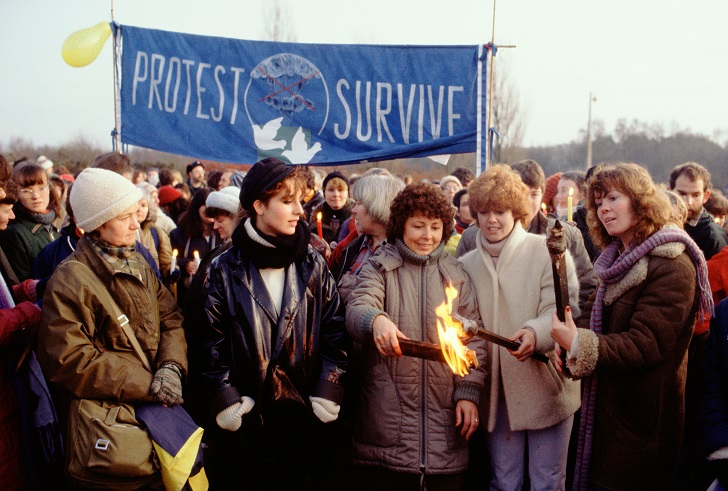
The camp was made up of women only and gender played an important role in the protest, contrasting against the male-dominated military space. I find it inspiring that women of different backgrounds, ages and personality types can form together to make a real political impact. It feels to me that the protest was successful not despite the fact that they were women, but because of it.
The women of Greenham Common are role models of collective action and have inspired other protest movements since. We at CPRE support the right to protest and believe it’s helped to shape the countryside we have today, which is open to everyone. The common is now a public space where visitors can explore the heathland along the walking trails and it’s also a haven for wildlife in the area. I’d love to go for a walk there myself and enjoy the open green space.
Sinead Fenton (by Maddy Haughton-Boakes)
I have been avidly following the highs and lows of the development of Aweside Farm for the past two years, captivated by direct-to-camera videos that Sinead, one half of the team behind the organic farm, shares regularly on Instagram. Sinead’s, and her partner Adam’s, commitment to bringing the diversity of the natural world into their farm is so joyfully inspiring it deserves making any list of current countryside heroes. From forgotten vegetables to hedgerows being planted for flood defences – it creates a vision for farming of the future.
View this post on Instagram
But Sinead isn’t just breaking barriers in hers and Adam’s farming approach. Growing up in London, as a woman of colour and from a lower income family, farming was not a conventional life choice for Sinead. After first muddying their hands at an allotment she and Adam took the leap and set up Aweside Farm. Moving onto the land in March 2020 they’ve battled floods, storms, freezing temperatures in their old caravan, heatwaves and of course the uncertainties of the pandemic. Documenting their journey on Instagram along the way, Sinead’s story is like a laid bare, real-life 2020s depiction of ‘The Good Life’.
Sinead’s story contributes to a reimagining of the future of farming and an inspiration for anyone wanting to follow their dreams. Sinead was drawn to the land, as she said in an interview her ‘heart desired being outdoors and being a bit feral’. So many of us have dreams that might seem beyond our reach, like leaving city life to live off the land. Sinead shows that if you’re willing to be a bit feral you really can follow your dreams.
Find more inspiring tales in our Your stories section.
